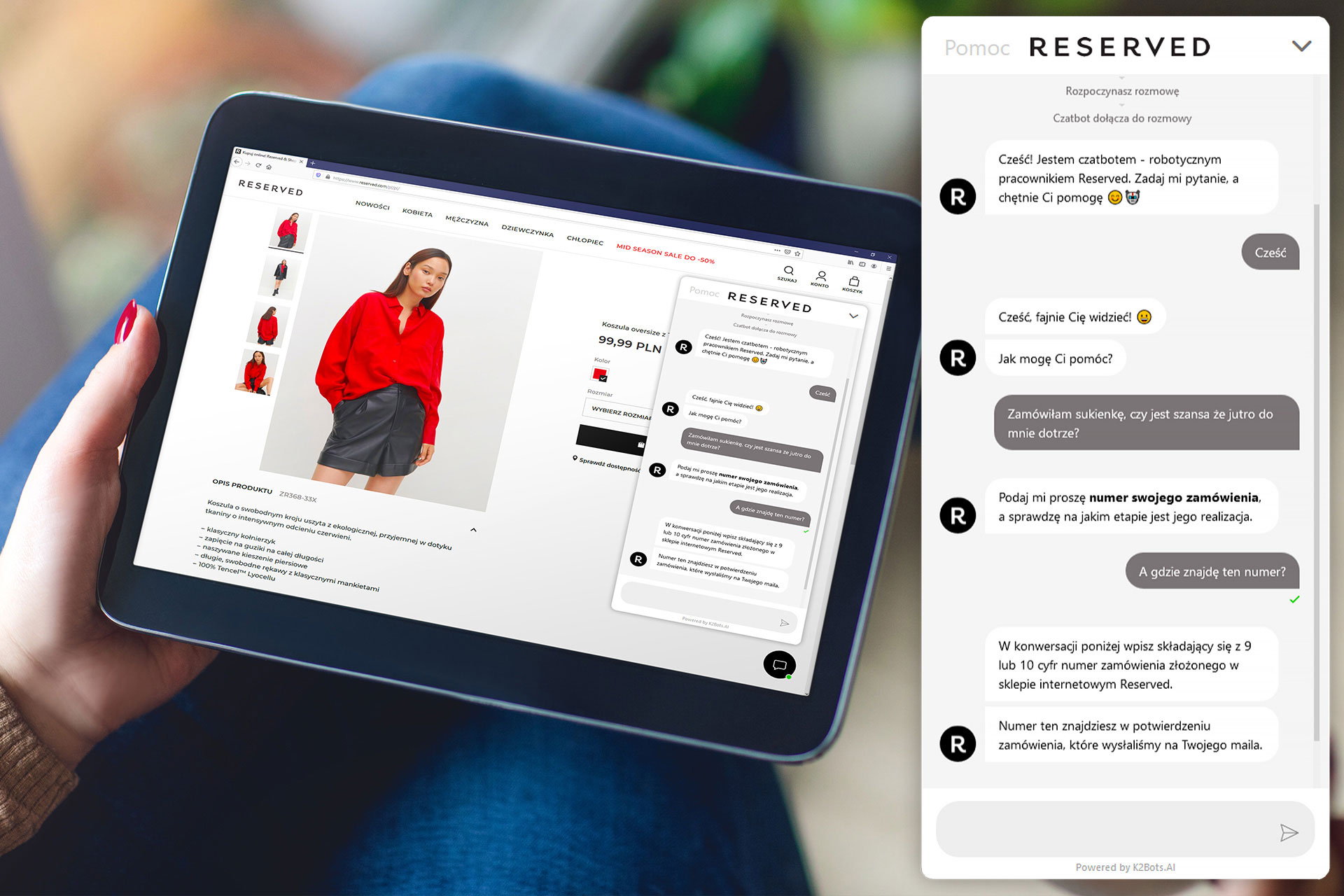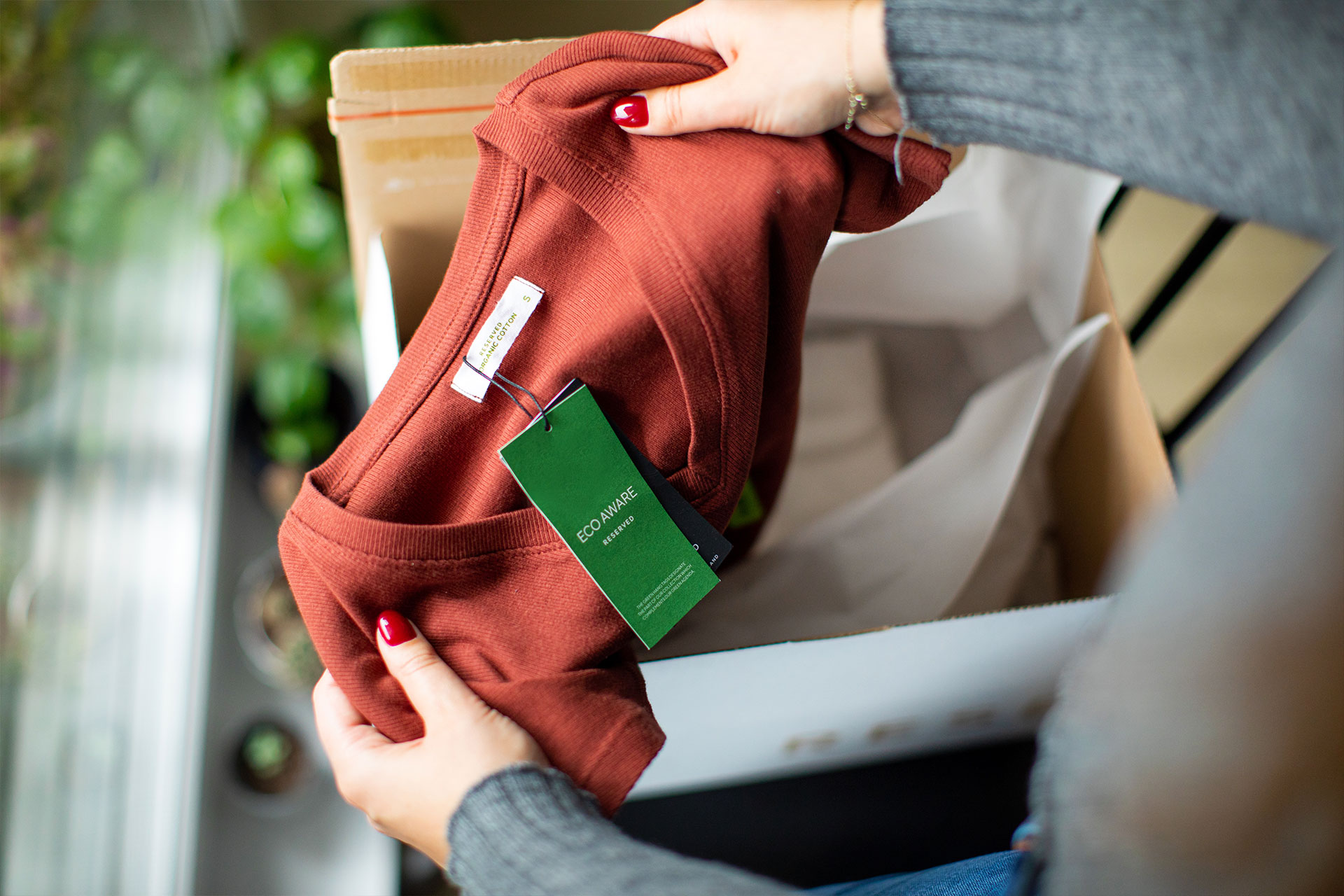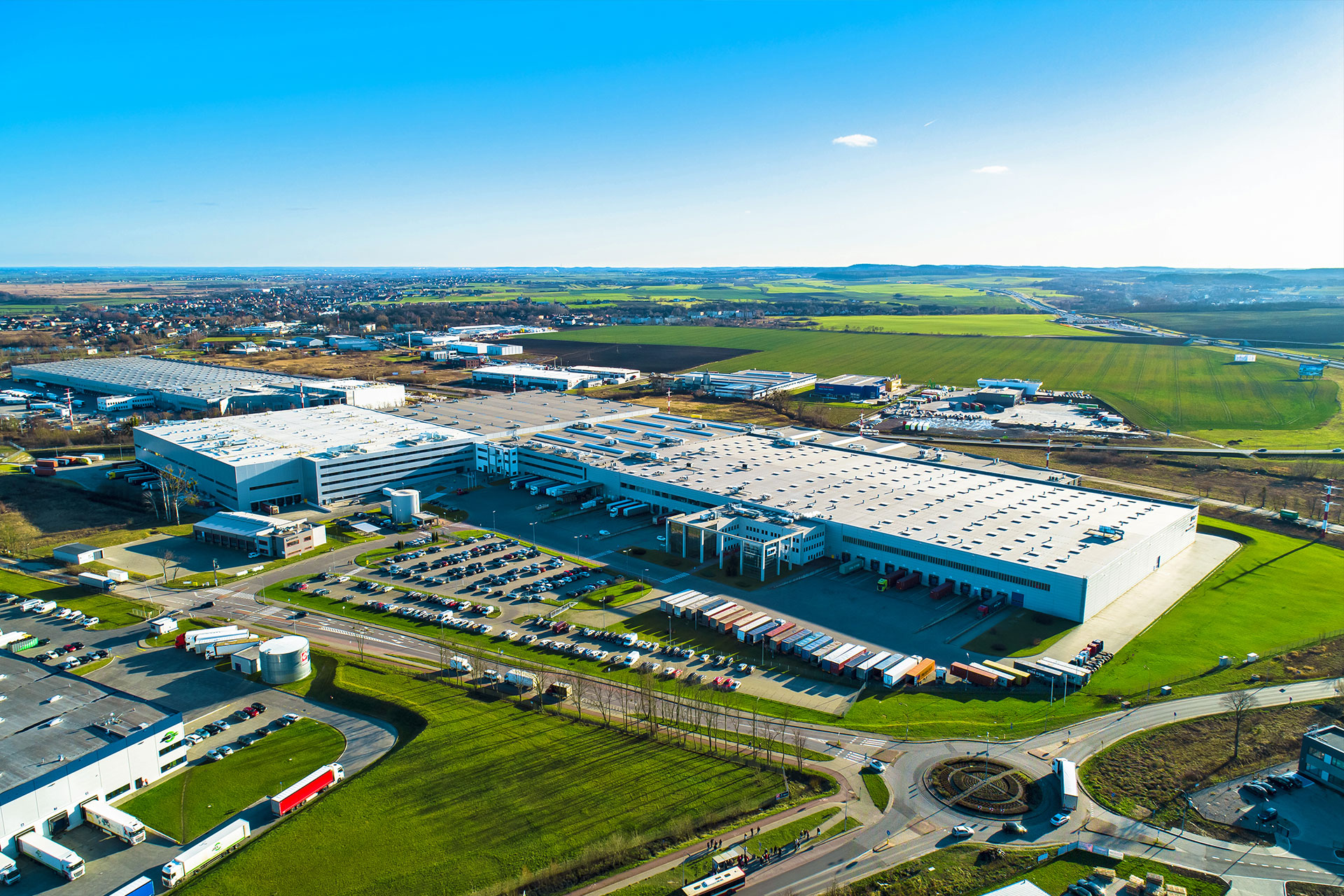The new reality as an innovation driver for LPP How a Polish clothing manufacturer changed its 3-year omnichannel plans in 3 weeks.

The new commercial reality marked the beginning of far-reaching changes for LPP, setting a new direction to the company’s business strategy for the post-pandemic times. The technological, logistic and sales transformation planned by the Polish clothing company for the next three years has materialised in three weeks. By way of a genuine and full integration of sales channels, LPP, as the first Polish company of this size, operating in the trade sector, has today become a truly omnichannel organisation.
During the lockdown period, like most companies in the industry, LPP faced the challenge of maintaining a stable financial situation of the company. Caution in cash management and cost discipline brought results. However, some companies did not survive the test of time, and the crisis caused by the suspension of traditional trade for a few weeks and restrictions introduced all over the world caused disappearance of many recognised brands from the market. The unprecedented situation has shown that even multi-generational traditions and an established position have not been decisive in maintaining liquidity – rather, the success was due to flexibility and the ability to adapt quickly to the new reality, based primarily on online sales. In LPP, the decisions allowing the company to be driven safely through the most difficult period and the bold decisions in the area of logistics based on proprietary technological solutions, as well as the financial cushion prepared for the crisis, which has been expected for two years now, gave the company the opportunity to adapt to the new reality.
– LPP was, is and will remain a family business, and the resulting organisational culture was, in my opinion, a key success factor during the lockdown period. Speed and agility in action, a short decision-making process, room for experimenting and looking beyond the perspective of the next quarter allowed us to make a change in our approach to our business quickly and efficiently. Today, it is the customers who decide where they want to spend their money, and we want to offer them the product they need and the level of service they expect, regardless of their preferred channel. By fully integrating and harmonising our sales channels and the structures working for them, we have adapted to the challenges of the new reality, which in LPP is called omnichannel – comments Marek Piechocki, CEO, LPP.
What paid off during the shutdown of traditional stores and rapid growth in online sales, and what allows the company to look into the future with moderate optimism today, were investments in fashion tech.
For several years now, LPP has been consistently increasing its expenditure on the implementation and development of new technologies. Since 2016, the company has already spent over PLN 180 million on projects and IT solutions supporting key areas. In the three-year perspective, i.e. until 2023, the investments in this area are expected to amount to PLN 600 million.
Regardless of the plans adopted, an unprecedented situation – the triple-digit growth in e-commerce recorded in the first months of the pandemic, reaching five times last year’s results – forced the company to implement its proprietary projects faster than expected, allowing the company to bear such a sudden change in the balance of power between sales channels. This would not be possible, however, without the recent projects such as the implementation of RFID technology in Reserved brand, cloud solutions for online stores, optimisation of solutions related to online order picking, numerous modifications of the WMS system or a proprietary logistics platform integrating courier companies’ systems.
– Today, the IT team in LPP equals the size of the largest IT companies in the country. We have created our own solutions, which we know from the inside out and which have been tailored to meet our needs. Paradoxically, the pandemic gave LPP a powerful innovative impulse, speeding up work on projects, many of which we were able to complete in a few weeks, instead of three years, as previously planned. Without this, and above all without the enormous effort of our employees, there would have been no chance of efficient service of the dynamically growing scale of online orders, and thus of generating revenue from this channel at a level allowing us to compensate for zero revenue from stationary sales – comments Jacek Kujawa, Vice-President of the Management Board of LPP.
The starting point for the whole transformation was a change in approach and recognition that in the new reality only harmonised sales channels make sense and the decision to speed up projects that made the brick-and-mortar stores network and online stores an integrated channel with a single stock and a consistent approach to the product and the customer.
– Over the last months, LPP has been reborn in a way. From a company in which the various sales and customer communication channels have been intertwined, but not integrated, we have turned into a truly omnichannel organisation. This change has affected virtually every area of the company: product, sales, logistics, IT and above all the innovative approach of our teams. We look at sales holistically, without dividing it into traditional stores and e-commerce. The product is to be available to the customer here and now, regardless of where the sales takes place and through which tools – says Marek Piechocki.
The actual and full integration of sales in LPP is based on two basic areas. The first one was the organisational changes consisting in the combination of structures designed to support individual channels. The model introduced thanks to this, based on an integrated approach and cooperation, allowed for streamlining the flow of information, improving the management of knowledge about individual sales channels, and above all, developing a method of product presentation and customer communication consistent for all points of contact with the customer. What allowed for the full transformation were also activities in the area of logistics systems and IT systems supporting them.
– The decision to remodel the Distribution Centre in Pruszcz Gdański, previously adapted to the wholesale shipment of goods to the stores, into a warehouse for handling individual orders of e-commerce customers, marked the beginning of the transformation and our response to the enormous challenge posed by a dynamic and unprecedented increase in the number of e-commerce orders. The adaptation work, which lasted only three weeks and included the integration of two WMS platforms and the modification of goods allocation and order picking systems using artificial intelligence algorithms, allowed us to ship up to 100 thousand items of clothing a day. Thus, the efficiency of LPP logistics in this period increased by as much as 300% – comments Jacek Kujawa.
Along with the activities in the area of improving the distribution network, LPP started working on the implementation of the “Mustang” (Multichannel Stock Management) programme and its key element – the “Defrost” project –strategic for further transformation. Thanks to the introduced changes, the company is able to manage the entire stock in an integrated manner, which means that the goods are directed to where they are needed at a given moment from a location that ensures the fastest delivery to the recipient. The company’s assumption that nowadays distribution must be closer to the customer has also opened the way for testing the concept of so-called “hub stores”, which play an additional role of mini-centres in regions far from the main warehouses.
– The implementation of the Defrost project allowed us to free up goods in stores for the purposes of regular e-commerce sales and thus protect them from being shifted to sell-offs. Ultimately, we want the customer who orders a product online with the in-store collection option to know that the ordered goods are waiting for them there even before their shut down their computer. At the same time, Defrost ensures better tapping of the potential of stores for e-commerce orders implementation, reduction of the last mile logistic costs, or increasing traffic in stores – says Jacek Kujawa.
The experience of the first wave of the pandemic confirms that in the current, still uncertain market conditions, the key to survival of the business is readiness for various scenarios. The actions recently taken by LPP and the implemented organisational, logistic and technological changes are an important safeguard in case of further restrictions in traditional trade, but they are also the company’s response to the new “normality” in the clothing industry.
______________________________________________________________________________
LPP SA is a Polish family business and one of the fastest growing clothing companies in the region of Central and Eastern Europe. For over 25 years it has been successfully operating in Poland and abroad, offering its collection already on 25 markets, including in such prestigious capitals as London, Berlin, Tel Aviv or Moscow. LPP SA manages five fashion brands: Reserved, Cropp, House, Mohito, and Sinsay. The company has a chain of over 1700 stores with the total area of over 1 million sq.m. The online offer of the brands collections is available on 29 markets. On the basis of a global supply chain, the Polish clothing producer distributes over 265 million pieces of clothing to three continents. LPP plays another important role as it employs over 24 thousand people in its offices and sales structures in Poland, Europe, Asia, and Africa. The company is listed on the Warsaw Stock Exchange in the WIG20 index and belongs to the prestigious MSCI Poland index.







